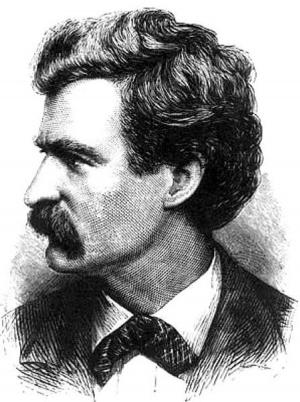Memoirs of Sergeant Bourgogne, 1812-1813
Nonfiction, Religion & Spirituality, New Age, History, Fiction & Literature| Author: | Adrien Jean Baptiste François Bourgogne | ISBN: | 9781465627636 |
| Publisher: | Library of Alexandria | Publication: | March 8, 2015 |
| Imprint: | Language: | English |
| Author: | Adrien Jean Baptiste François Bourgogne |
| ISBN: | 9781465627636 |
| Publisher: | Library of Alexandria |
| Publication: | March 8, 2015 |
| Imprint: | |
| Language: | English |
It was in the month of March, 1812, while we were engaged against the English army commanded by Wellington, at Almeida in Portugal, that we received orders to march for Russia. We crossed Spain, each day being marked by an engagement, sometimes by two and in this way reached Bayonne, the first town over the frontier in France. On leaving this place, we travelled by the stage as far as Paris, where we expected to stay and rest; but after a halt of forty-eight hours, the Emperor reviewed us, and, deciding that we were not in need of rest, marched us all along the boulevards. Then we turned to the left in the Rue St. Martin, crossed La Villette, and found several hundred coaches and other vehicles waiting for us; we halted, but were ordered to mount four into every carriage—and, crack! we were off to Meaux. From there onwards to the Rhine in waggons, travelling day and night. We stayed at Mayence, and then crossed the Rhine, afterwards passing on foot through the grand-duchy of Frankfort, Franconia, Saxony, Prussia, and Poland. We crossed the Vistula at Marienwerder, entered Pomerania, and on the morning of June 25, a beautiful day (not, as M. de Ségur said, in bad weather), we passed over the Niemen by our pontoons, and entered Lithuania, the first province in Russia. On the next day we left our first position, and marched until the 29th, without anything noteworthy happening; but during the night of the 29th and 30th we heard a rumbling noise—it was thunder accompanied by a furious wind. Masses of clouds gathered over our heads, and broke. The thunder and the wind lasted for more than two hours, and in a few minutes our fires were put out, our shelter torn away, our piled arms thrown down. We were lost, and did not know which way to turn. I ran to take shelter in the direction of the village where the General was lodged, but I had only the lightning to guide me—suddenly, in one of the flashes, I thought I saw a road (it was unfortunately a canal, swollen by the rain to the level of the ground). Expecting to find solid earth under my feet, I plunged in and sank. On rising to the surface I swam to the other bank, and at last reached the village. I walked into the first house I saw, and entered a room filled by about twenty men, officers, and servants, all asleep. I took possession of a bench placed near a large warm stove, and, undressing, wrung the water out of my shirt and other clothes, huddling myself up on the bench till they were dry; when daylight came, I dressed as well as I could, and left the house to look for my weapons and knapsack, which I found scattered in the mud. On the 30th, a beautiful sun dried everything, and the same day we reached Wilna, the capital of Lithuania, where the Emperor had arrived the day before, with some of the Guard. While we were there, I received a letter from my mother, enclosing another addressed to M. Constant, the Emperor's chief valet, who came from Peruwelz in Belgium. This letter was from his mother, an acquaintance of my mother's. I went to the Emperor's lodging to deliver the letter, but only saw Roustan, the Emperor's mameluke, who told me that M. Constant had gone out with His Majesty. He invited me to wait till he returned, but, as I was on duty, I could not do so. I gave him the letter, and decided to come back and see M. Constant another time. But the next day, July 16, we left the town, at ten o'clock in the evening, going towards Borisow, and on the 27th we reached Witebsk, where we encountered Russians. We took up our position on a height above the town. The enemy occupied hills to right and left. The cavalry, commanded by Murat, had already made several charges.
It was in the month of March, 1812, while we were engaged against the English army commanded by Wellington, at Almeida in Portugal, that we received orders to march for Russia. We crossed Spain, each day being marked by an engagement, sometimes by two and in this way reached Bayonne, the first town over the frontier in France. On leaving this place, we travelled by the stage as far as Paris, where we expected to stay and rest; but after a halt of forty-eight hours, the Emperor reviewed us, and, deciding that we were not in need of rest, marched us all along the boulevards. Then we turned to the left in the Rue St. Martin, crossed La Villette, and found several hundred coaches and other vehicles waiting for us; we halted, but were ordered to mount four into every carriage—and, crack! we were off to Meaux. From there onwards to the Rhine in waggons, travelling day and night. We stayed at Mayence, and then crossed the Rhine, afterwards passing on foot through the grand-duchy of Frankfort, Franconia, Saxony, Prussia, and Poland. We crossed the Vistula at Marienwerder, entered Pomerania, and on the morning of June 25, a beautiful day (not, as M. de Ségur said, in bad weather), we passed over the Niemen by our pontoons, and entered Lithuania, the first province in Russia. On the next day we left our first position, and marched until the 29th, without anything noteworthy happening; but during the night of the 29th and 30th we heard a rumbling noise—it was thunder accompanied by a furious wind. Masses of clouds gathered over our heads, and broke. The thunder and the wind lasted for more than two hours, and in a few minutes our fires were put out, our shelter torn away, our piled arms thrown down. We were lost, and did not know which way to turn. I ran to take shelter in the direction of the village where the General was lodged, but I had only the lightning to guide me—suddenly, in one of the flashes, I thought I saw a road (it was unfortunately a canal, swollen by the rain to the level of the ground). Expecting to find solid earth under my feet, I plunged in and sank. On rising to the surface I swam to the other bank, and at last reached the village. I walked into the first house I saw, and entered a room filled by about twenty men, officers, and servants, all asleep. I took possession of a bench placed near a large warm stove, and, undressing, wrung the water out of my shirt and other clothes, huddling myself up on the bench till they were dry; when daylight came, I dressed as well as I could, and left the house to look for my weapons and knapsack, which I found scattered in the mud. On the 30th, a beautiful sun dried everything, and the same day we reached Wilna, the capital of Lithuania, where the Emperor had arrived the day before, with some of the Guard. While we were there, I received a letter from my mother, enclosing another addressed to M. Constant, the Emperor's chief valet, who came from Peruwelz in Belgium. This letter was from his mother, an acquaintance of my mother's. I went to the Emperor's lodging to deliver the letter, but only saw Roustan, the Emperor's mameluke, who told me that M. Constant had gone out with His Majesty. He invited me to wait till he returned, but, as I was on duty, I could not do so. I gave him the letter, and decided to come back and see M. Constant another time. But the next day, July 16, we left the town, at ten o'clock in the evening, going towards Borisow, and on the 27th we reached Witebsk, where we encountered Russians. We took up our position on a height above the town. The enemy occupied hills to right and left. The cavalry, commanded by Murat, had already made several charges.















